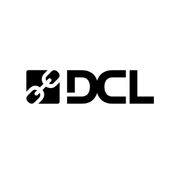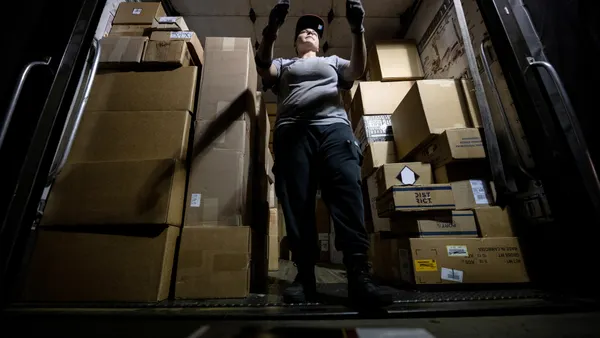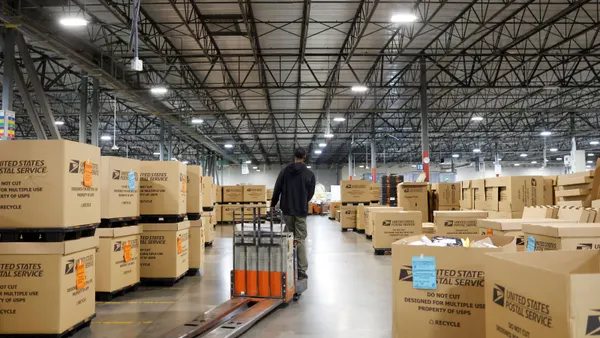The following is a guest post from Shariq Mansoor, Founder of FusionOps.
When Steve Jobs stepped down from his post as CEO of Apple, the world held its breath in anticipation. Who could possibly replace the charismatic architect of the world's most profitable brand? Of course, anyone who knew anything about Apple's upper management circle was already aware that Tim Cook was the obvious choice — and not just because he had filled in for Jobs on three separate occasions.
"Cook is credited with completely restructuring Apple's manufacturing operations, insisting that Apple shut down its overseas factories and farm out the work to third-party manufacturers," CNET's Steve Musil wrote back in 2011. "As a result, the company reduced inventory and improved margins on its entire product lineup."
From his experience, Cook had a bird's-eye view of Apple's supply chain, from product creation to product delivery. And beyond just maximizing Apple's profits, he used the role as a pathway to CEO.
It turns out that Apple was once again ahead of a trend that's only become prominent in recent months: tapping into supply chain talent for new company leadership roles.
A fast track to profit and prominence
In December 2016, Lego – the second-most profitable toymaker after Mattel – announced that Chief Operating Officer Bali Padda would be stepping into the role of CEO. Padda has played a key role in boosting the company's profits, which as of 2010 were sitting pretty at $2.3 billion. As of 2015, that amount had more than doubled, capping at $5.2 billion. But according to Padda, Lego's work is far from over.
"The world is being disrupted in many ways," Padda said. "How do we become a lot more agile to face the challenges that will come to us tomorrow?"
It's a good question, and no one is in a better position to tackle it than someone who has extensive supply chain experience, and more importantly, has proven capable of dealing with disruption and adversity. Execution of the board's big ideas depends on timely acquisition of affordable raw materials and their subsequent transportation to manufacturing sites. Ideally, these sites are strategically located so as to expedite routes to inventory warehouses, where a relentless balancing act is taking place to plan for supply and demand. Factor in compliance management every step of the way, unforeseeable disruptions such as acts of nature, political changes and social upheaval in foreign nations, and it becomes clear that no one has a harder job than the CSCO or COO.
Now more than ever, supply chain management is more science than art.

Shariq Mansoor
Founder, FusionOps
This is precisely why industry titans are competing with one another for the top supply chain talent. Case in point: Target. Shekar Natarajan, who is now the senior vice president of network planning and operational design for Target, previously worked as Wal-Mart's vice president of last mile operations, emerging sciences and operational excellence. He'd been testing an initiative with Wal-Mart that would leverage drones in warehouses to help streamline operations and ultimately expedite time to market.
Now Natarajan is performing a similar function with Target, where he will be introducing new processes and technology with the end goal of reducing out-of-stock situations and getting deliveries to customers faster. Other organizations that have turned to supply chain for better operations in recent years include UPS, FedEx, DHL, Maersk and many more.
Digital transformation: Every CSCO's top priority
Perhaps Target put it best when they explained why they brought on Natarajan: to implement "new automation and other technologies to enhance speed, accuracy and efficiency."
Supply chain experts are central to better business because that's where the greatest opportunities for improvement lie. And at the moment, there's no better avenue to these improvements than through digital transformation. Cloud technology, Big Data and advanced analytics are enabling more automation, better insight and up-to-the-second responsiveness of individual supply chain functions.
Now more than ever, supply chain management is more science than art. Operations experts who select their tech resources wisely have the best chance of succeeding at supply chain transformation, and ultimately putting themselves in a position to add substantial value to their organization. As a nice side benefit, they'll also be in good standing to receive one heck of a promotion.
Just ask Tim Cook. He'll tell you what's up.
Shariq Mansoor is the founder of FusionOps. A visionary technologist and entrepreneur with a proven record of innovation, Shariq has created and launched multiple enterprise software products to market. He is the inventor of several patents in the area of Cloud Computing, Analytics and SaaS Applications. He has been honored with the “Pros to Know” award by Supply and Demand Chain Executives in 2014 and 2016. At FusionOps, Shariq manages the R&D, DevOps and Product Management teams spread across four continents. Prior to founding FusionOps, Shariq was the principal architect of ADAC Information Systems (acquired by Cerner Corporation). Shariq holds a BS in Computer Science from the University of Houston.












